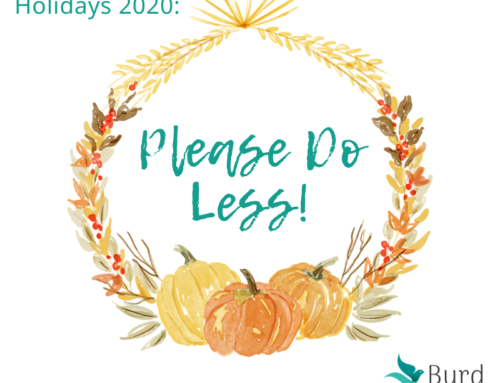In case you missed it…
Janisha Street and I recorded a video course for my online, on-demand school back in 2019. #BlackMomsMatter remains a relevant introduction into the disproportionate impact of perinatal mental illness in the Black and African-American community. More importantly, we cover practical ways to make things better.
Sadly, the door will close to new students 1/31/22
Unfortunately, I’ve made the decision to downgrade the hosting for my online school, and all of the published courses, including the cornerstone Prevent Postpartum Depression. This means:
- I will not publish any new courses
- No new students can join after 1/31/22
- Your access to already enrolled courses including #BlackMomsMatter, Prevent Postpartum Depression, Relationships After Baby, and the Fourth Trimester Short Course will not change.
- If you were considering trying a new course, or recommending to a friend, I’m offering a going out of business discount of 70% off any and all courses. Just use the code “SCHOOLCLOSING“. The ability to use coupon codes will be lost after the downgrade on 1/31/22. Access to the course will not end and you will have all the time you need to watch the videos and return as often as you like.
Black moms still matter
I still stand by the content in the online school! Although rates of depression and anxiety have increased since the pandemic, the skills and strategies in the courses are still relevant, evidenced-based, and make a real difference in my clients’ lives.
One resource for new families is not closing…
The Postpartum Depression Workbook includes a section written especially for Black women. The publishers have given me permission to reproduce sections of my book here.
Women of color/BIPOC (Black, Indigenous, and people of color).
About 20 percent of women develop postpartum depression (PPD), but 38 percent of women of color suffer from PPD. Black and Hispanic depressed mothers are more likely to experience multiple adversities and are less likely to receive services than White depressed mothers. Studies show Black and Latinx mothers with PPD are less likely to start treatment, have fewer treatment options, and are less likely to stick with treatment. Indigenous women also have higher rates of perinatal depression. Although all women are now supposed to be screened for depression and anxiety during perinatal visits, a recent study showed racial disparities: Indigenous and multiracial women are less often screened for PPD than White women, Asian women even less, and Black women least often of all.
So Black women are more likely to experience PPD, but even worse, they are three to four times more likely to die from childbirth. Black women who are college educated or over the age of 30 are four to five times more likely to die from pregnancy and birth-related causes than White women. Institutional racism directly and indirectly leads health-care providers to take the concerns of Black women less seriously. The CDC reports that Black women are twice as likely to have their infant die prematurely. Chronic exposure to racism increases physical and mental health problems, as well as rates of miscarriage and infertility. In fact, the lived experience of chronic racism changes the uterus, increasing preeclampsia, negatively impacting the placenta and umbilical cord, and leading to preterm birth and low birth weight. Furthermore, these impacts of lived racism can be seen in birth outcomes a generation later.
Women of color overall have less access to high quality mental health resources. Although we are finally seeing more awareness around the structural racism impacting pregnant and postpartum parents, much more work is still needed to better support Black mothers.
(Excerpt from Burd, Abigail. The Postpartum Depression Workbook: Strategies to Overcome Negative Thoughts, Calm Stress, and Improve Your Mood. Rockridge Press, 2020.)
Don’t just take my word for it…
I value the voice of lived experience over academics. I am thankful for Janisha’s partnership and voice as an instructor in the #BlackMomsMatter course. (And thank you Janisha for coming up with the title!)
If you do like to see that the numbers above weren’t pulled out of the air, please refer to the workbook for a full list of the evidence based studies referenced, but here a few selected places to research more.
- Alhusen, Jeanne L., Kelly M. Bower, Elizabeth Epstein, and Phyllis Sharps. “Racial Discrimination and Adverse Birth Outcomes: An Integrative Review.” Journal of Midwifery & Women’s Health 61, no. 6 (2016); 707-720. doing: 10.1111/jmwh.12490
- Davalos, D. B., C. A Yadon, and H. C. Tregellas, “Untreated Prenatal Maternal Depression and the Potential Risks to Offspring: A Review,” Archive of Women’s Mental Health 15, no.1 (2012): 1-14
- Keefe, Robert H., Carol Brownstein-Evans, and Rebecca S. Rouland Polmanteer, “Having Our Say: African-American and Latina Mothers Provide Recommendations to Health and Mental Health Providers Working with New Mothers Living with Postpartum Depression,” Social Work in Mental Health 14, no. 5 (2016): 497-508. doing 10.1080/15332985.2016.1140699.
- Lu, Michael C., et. al., “Closing the Black-white Gap in Birth Outcomes: A Life-Course Approach,” Ethnicity & Disease 20, 1 Suppl. 2 (2010): S2-62-76.
- Major-Kincade, Terri, and Kiley Hanish, Challenging the Superwoman Mentality in the Black Community after Pregnancy and Infant Loss (webinar). Return to Zero: H.O.P.E., June 24, 2020.
- McFarlane, Nichia, “U.S. Maternal Mortality Points to Institutional Racism. Is Philanthropy Listening to Black Women?” National Committee for Responsive Philanthropy, April 23, 2019.
- Sidebottom, Abbey, et. al., “Perinatal Depression Screening Practices in a Large Health System: Identifying Current State and Assessing Opportunities to Provide More Equitable Care,” Archives of Women’s Mental Health, published online May 5, 2020, ahead of print. doing: 10.1007/s00737-020-01034-x.







What are your thoughts?